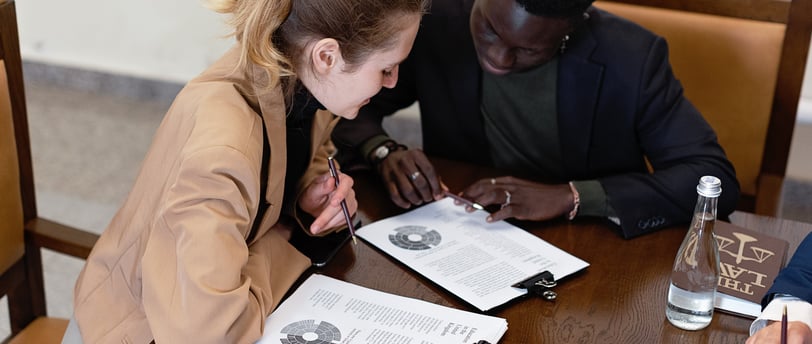Sealing the Deal: The Unsung Heroes of Real Estate Closings


When we think about the most crucial moments in buying or selling a property, images of handshakes over polished tables, and the passing of keys come to mind. However, one element that often flies under the radar, yet plays a pivotal role in ensuring these moments proceed smoothly, is the notary service. These unsung heroes of real estate transactions ensure that the t’s are crossed and the i’s are dotted, protecting all parties involved.
Introduction to Notary Services in Real Estate
Notary services might seem like just another checkpoint in the labyrinth of purchasing or selling real estate. Yet, their role is foundational in legitimizing and safeguarding the process. They serve as impartial witnesses to the signing of crucial documents, verify the identity of the signees, and help to prevent fraud, ensuring that the transaction is conducted legally and ethically.
What does a Notary do?
* Verify the identity of the parties involved
* Confirm parties understand the documents being signed
* Witness the signing of documents
* Stamp or seal documents to deter fraud and signify their involvement
The Critical Role of Notaries in Real Estate Closings
At a real estate closing, a notary public's role transitions from important to indispensable. Here’s why:
Authenticating the Process
Notaries ensure that the person signing a document is who they claim to be, which is especially critical in high-stakes transactions like real estate. This authentication process involves checking identification and sometimes even fingerprinting.
Ensuring Willingness and Understanding
It’s the notary's responsibility to confirm that signers are not only who they say they are but also willing to sign the documents and aware of what they're signing. This step is vital for the legality of the transaction.
Fraud Prevention
The mere presence of a notary discourages deceit and fraud. The notary’s signature and seal on documents signify that the documents have been properly verified, making it harder for fraudulent activities to succeed.
Maintaining Public Trust
Notaries act as objective participants who ensure the fairness and honesty of the transaction, maintaining public trust in the process of real estate transactions.
The Notarization Process: A Step-by-Step Guide
Understanding the steps involved in notarizing real estate documents can demystify the process and highlight the notary's role in ensuring a seamless closing.
1. Document Verification: The notary confirms that the document is complete, without blank spaces that could lead to fraudulent additions later.
2. Identity Verification: Signers must present valid identification to confirm their identity to the notary.
3. Willingness and Awareness Check: The notary ensures that signers are willingly participating and understand the document.
4. Document Signing: This occurs in the notary's presence to ensure authenticity.
5. Notarization: The notary stamps or seals the document, officially notarizing it.
Scenarios That Highlight the Importance of Notaries
Preventing Property Fraud
Imagine a scenario where someone attempts to sell a property they do not own. A notary’s meticulous verification of identity can stop such a transaction in its tracks.
Ensuring Elder Protection
Elderly individuals can be susceptible to being taken advantage of in property dealings. Notaries play a crucial role in ensuring that any elderly individuals signing documents are doing so of their own free will and with full understanding of the document.
Conclusion: The Guardians of Real Estate Integrity
Notary services stand as guardians at the gates of real estate transactions, ensuring that fairness, legality, and integrity are maintained throughout. Their role might not always be at the forefront of our minds, but their impact on the security and legitimacy of property transactions is unmistakable. As we navigate our own journeys in buying or selling real estate, let's remember the vital role these professionals play in helping us cross the threshold into our new homes.
Remember, the next time you find yourself at a real estate closing, appreciate the notary for their indispensable contribution to sealing the deal. Their stamp of approval is more than a formality; it’s a cornerstone of trust in real estate transactions.
